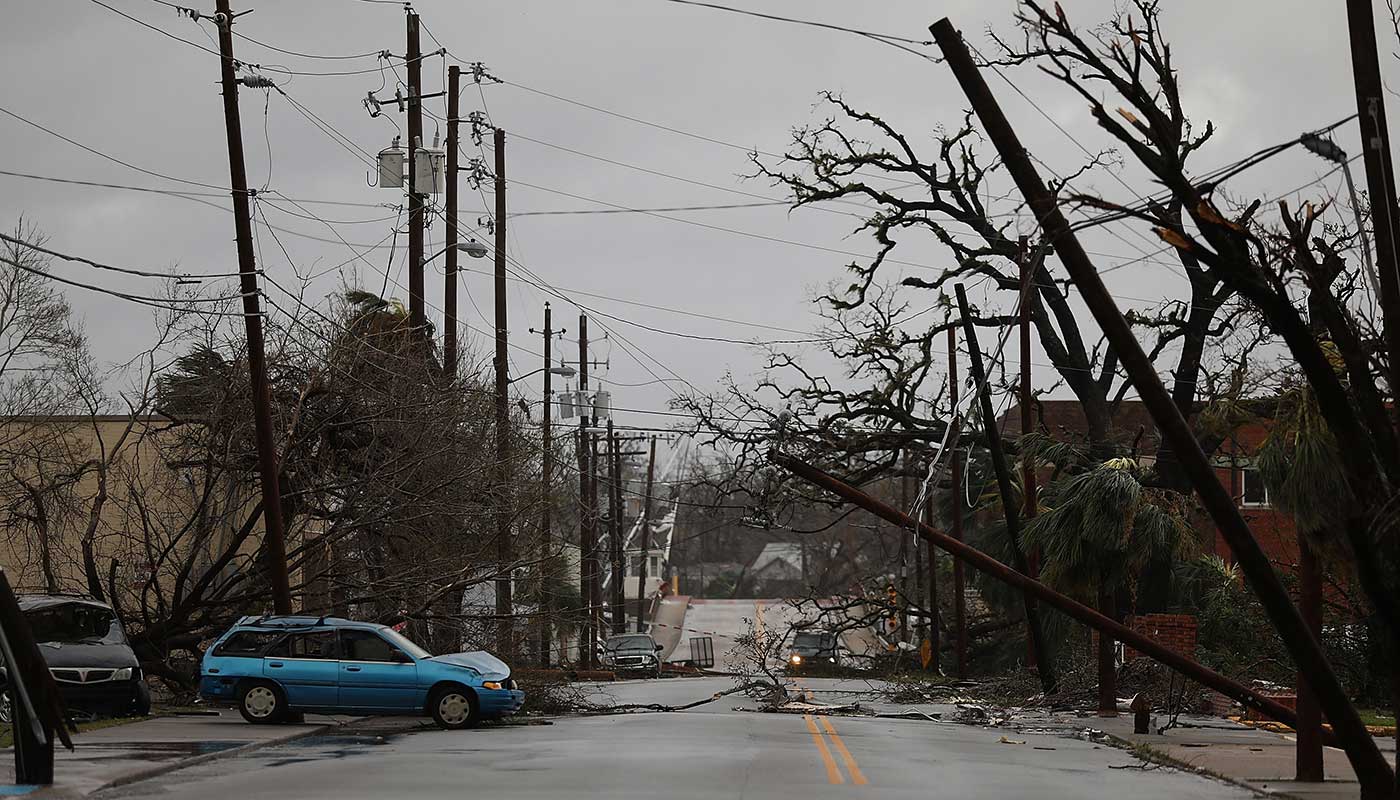Hurricane Michael: at least 19 dead and millions without power
The tropical storm has left trail of ‘complete and total devastation’ in Florida and Georgia

A free daily email with the biggest news stories of the day – and the best features from TheWeek.com
You are now subscribed
Your newsletter sign-up was successful
The death toll from Hurricane Michael is continuing to grow, with at least six people reported dead in Florida and Georgia while hundreds more are missing.
Michael is the fourth most-powerful hurricane to ever make landfall in the US by wind speed, at up to 155mph - just shy of becoming a Category 5 storm. The storm hit the Florida Panhandle near Mexico Beach on Wednesday, leaving a trail of what the BBC describes as “complete and total devastation”, with buildings flattened, trees uprooted and power lines downed.
A total of around 1.6 million homes across six states in the southern US have been left without power, with North Carolina worst hit, CBS News reports.
The Week
Escape your echo chamber. Get the facts behind the news, plus analysis from multiple perspectives.

Sign up for The Week's Free Newsletters
From our morning news briefing to a weekly Good News Newsletter, get the best of The Week delivered directly to your inbox.
From our morning news briefing to a weekly Good News Newsletter, get the best of The Week delivered directly to your inbox.
The hurricane's deadly trail “now stretches from the Florida Panhandle, where it wiped away a coastal city, to the Carolinas, where it triggered flash floods that turned roads into rivers”, according to CNN.
Donald Trump had been briefed on the storm by Fema administrator Brock Long and Homeland Security Secretary Kirstjen Nielsen, who advised the president that any buildings constructed prior to 2001 had not been designed to withstand the storm’s winds.
“This started out very innocently a week ago. This was a small storm,” the president said. “It grew into a monster.”
US National Weather Service director Dr Louis Uccellini described Michael as a “worst-case scenario”.
A free daily email with the biggest news stories of the day – and the best features from TheWeek.com
Prior to making landfall in the US, the hurricane battered Central America, triggering flash floods and landslides in Cuba, El Salvador, Honduras and Nicaragua, The Guardian reports. Six people died in Honduras, four in Nicaragua, and three in El Salvador.
But worse is still to come, says CNN. Michael “is expected to gain strength as it passes into Virginia and moves i
-
 Political cartoons for February 14
Political cartoons for February 14Cartoons Saturday's political cartoons include a Valentine's grift, Hillary on the hook, and more
-
 Tourangelle-style pork with prunes recipe
Tourangelle-style pork with prunes recipeThe Week Recommends This traditional, rustic dish is a French classic
-
 The Epstein files: glimpses of a deeply disturbing world
The Epstein files: glimpses of a deeply disturbing worldIn the Spotlight Trove of released documents paint a picture of depravity and privilege in which men hold the cards, and women are powerless or peripheral
-
 Greenland’s capital becomes ground zero for the country’s diplomatic straits
Greenland’s capital becomes ground zero for the country’s diplomatic straitsIN THE SPOTLIGHT A flurry of new consular activity in Nuuk shows how important Greenland has become to Europeans’ anxiety about American imperialism
-
 Epstein files topple law CEO, roil UK government
Epstein files topple law CEO, roil UK governmentSpeed Read Peter Mandelson, Britain’s former ambassador to the US, is caught up in the scandal
-
 Iran and US prepare to meet after skirmishes
Iran and US prepare to meet after skirmishesSpeed Read The incident comes amid heightened tensions in the Middle East
-
 Which way will Trump go on Iran?
Which way will Trump go on Iran?Today’s Big Question Diplomatic talks set to be held in Turkey on Friday, but failure to reach an agreement could have ‘terrible’ global ramifications
-
 Israel retrieves final hostage’s body from Gaza
Israel retrieves final hostage’s body from GazaSpeed Read The 24-year-old police officer was killed during the initial Hamas attack
-
 China’s Xi targets top general in growing purge
China’s Xi targets top general in growing purgeSpeed Read Zhang Youxia is being investigated over ‘grave violations’ of the law
-
 Ukraine, US and Russia: do rare trilateral talks mean peace is possible?
Ukraine, US and Russia: do rare trilateral talks mean peace is possible?Rush to meet signals potential agreement but scepticism of Russian motives remain
-
 Panama and Canada are negotiating over a crucial copper mine
Panama and Canada are negotiating over a crucial copper mineIn the Spotlight Panama is set to make a final decision on the mine this summer